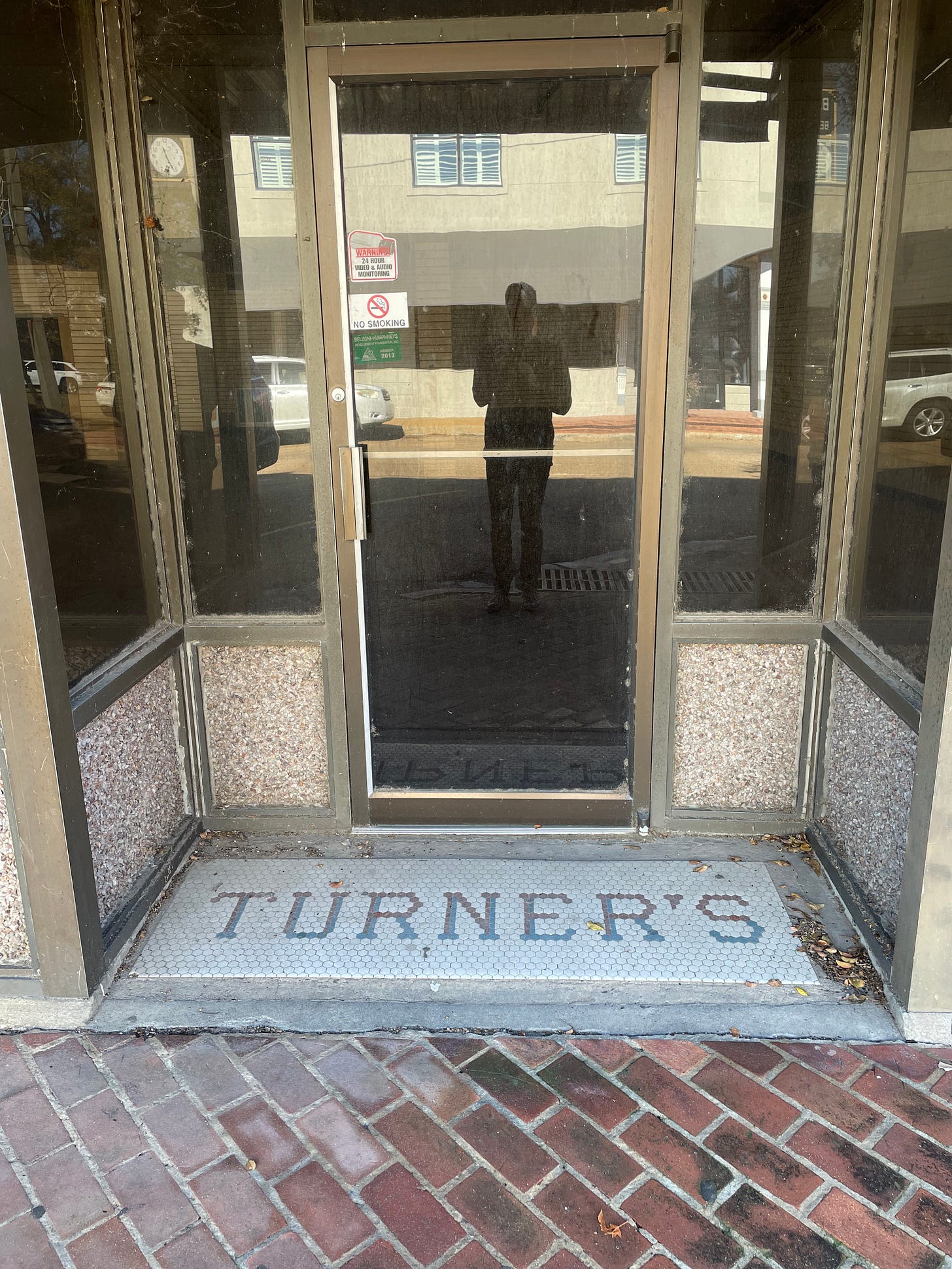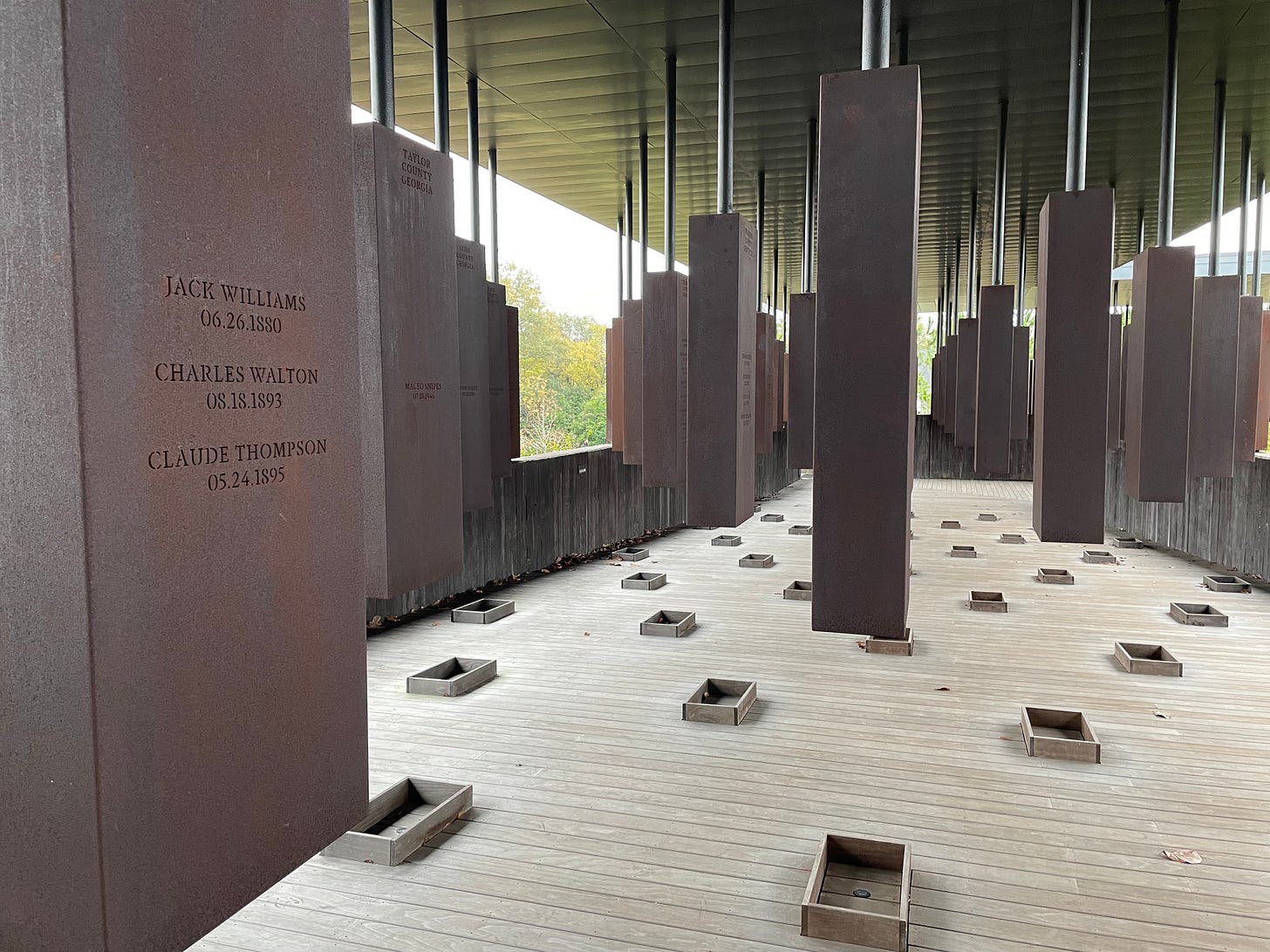Substack Library
GlossaryLetter From Mississippi
December 2, 2022Monday was warm and sunny in Belzoni, Mississippi. As I turned a corner in a downtown pocked with empty buildings, I was greeted with a genial “good morning” by a man with a holstered weapon on his hip, legal in an open-carry state. The post-Civil Rights Delta is a juxtaposition of amiable people, violence, progress and dysfunction.
I traveled to Mississippi, the subject of today’s essay, for the same reason I spent time in Russia, China and other places foreign to me—the unfamiliar is the fastest route to broadening perspective about what is true. Every society has their sins and fragilities. America’s include slavery, Civil War, Civil Rights, economic disruption and Trumpism and they all run through Mississippi. The region is also home to America’s distinct artistic voice, including the blues and Faulkner.
Violence and Rankings
“It’s like the wild west up there,” said another Belzoni man, this one missing teeth and nodding in the direction of Greenwood. I was debating between driving east toward Greenwood, population 15,000, or west toward Indianola, birthplace of BB King and was asking for some guidance. “They got bodies lying around, I don’t know 20 or 30 this year alone,” he said.
“Why do they shoot people?” I asked.
“They’ll shoot ya just because ya look at ‘em hard,” he said.
I crossed Greenwood off the itinerary and later Googled the numbers. He was right. Greenwood, one of many Mississippi towns key to the Civil Rights movement, today is more dangerous than 96% of US towns. Below is Belzoni’s now vacant Turner’s Drug Store where blues legend Sonny Boy Williamson recorded in 1947.

“It seems like we’ve determined to be at the bottom of every list, or the top of every list that you want to be the bottom of,” said Mississippi denizen and actor Morgan Freeman, as quoted by Richard Grant in Dispatches from Pluto. “Teenage pregnancy, education, poverty, you name it.”
The Essential Unfamiliar
I grew up in Washington, D.C. in the 1970s and 80s and the unfamiliar was all around, if I looked for it. There were embassies of foreign countries I vowed to one day visit. There was D.C. itself which was not legally segregated but blacks and whites often worshipped at different churches, listened to different music and lived in different neighborhoods.
As a teenager, I played for two summers in a jazz band sponsored by Mayor Marion Barry. I was the one white guy in a roughly 15 person group. It was clear that while much was similar between my bandmates and me, there were also significant differences.
Beyond the color of our skin, we dressed slightly differently, had different speech patterns (I was slower on any verbal rejoinder) and approached the work differently. For some of my bandmates, playing music wasn’t an “extra curricular,” it was a way out via recruitment to one of the elite, mostly southern college marching bands. I didn’t know any students at my mostly white high school who engaged with music with such necessity and intensity.
Later, working as a foreign correspondent in Moscow, I married local. Through my wife Marina I began to see more deeply how fundamentally unfamiliar another person’s upbringing can be. Marina was born in a log cabin without running water. Her father was a violent alcoholic. The KGB threatened her. She viewed the government or any social structure with a whiff of a supreme leader with deep skepticism. I began to see my own circumstances and perspectives were one of many, each “normal” to the person who experienced them.
Money Flows
Fast forward to today. The US has had Obama, then Trump, political whiplash. New England, where I live, was largely terrified of Trumpism and many viewed Obama as an unambiguous sign of progress. In Mississipi, in 2020, 57% voted for Trump, with the Delta where Belzoni is located solidly Biden.
Why did Trumpism resonate in Mississippi? I arrived via Alabama and my initial impression was not so much a history of racism, though that was soon evident and clearly played a role in the rise of Trump. Instead, my initial impression was economic decline. Montgomery, Selma, Leland and Greenville looked just as beat up as Belzoni.
Money is unstable and grows or shrinks in a self-reinforcing way. Income leads to borrowing leads to growth in capital. Shrinking population, productivity and competitiveness leads to shrinking income and sends the cycle into a painful reverse. Typically, there is a shock, a key slice of society leaves, often the elite, which reduces the tax base, lowers productivity and public services and weakens the social fabric, which then leads to more people outflows.
In Russia, for instance, that shock was the 1917 Revolution, then Stalinism, now the war in Ukraine. Each time, talent flees and the political culture becomes nastier. Mississippi has had repeated economic shocks including the Civil War, the Great Migration (1910-1970) and China’s 1982 opening, which eviscerated Mississippi manufacturing jobs turning its cotton into clothes. Mississippi experienced net population outflows, particularly of more educated people, repeatedly, as the chart below illustrates.1

The Great Stain
If the economics felt like Russia or Yugolsavia’s decline, the memorials were along the lines of what I’ve seen in Berlin, Oscwiecim (Auschwitz), Sarajevo and Nanjing. Human beings possess an unsettling capacity for violence and sadistic cruelty. In Montgomery, Alabama signs identify the location of the main slave market. At a lynching memorial the name, date and location of victims are denoted on metal boxes, shown below, that hang, hauntingly, above you.

Slavery and Jim Crow unfolded not in a spasm of violence but over hundreds of years. In that sense, the legacy is more like the long crushing weight of the Russian state on serfs and then Soviet citizens and less like a bloody but discrete war.
“This was still going on in the 1970s,” said a restaurant owner I spoke with in Leland, referring to segregated swimming pools.
“I thought the laws changed in the 1960s,” I said.
“Laws? Well, they outlawed slavery in 1865, but look what happened.”
Point taken. Integration is one generation old. Now in the Delta much of the political leadership is Black but the wealth is still largely white, as Grant’s book noted. It is now up to these leaders to reverse the decline, a tall order.
Wealth Culture
Listening to a thoughtful preacher Sunday morning juggle references to the Nehemiah 6, MC Hammer (“too legit to quit”) and personal history was a reminder Christianity provided African Americans with a template for opposing slavery and Jim Crow. The Old Testament’s foundation myth is escaping Egyptian slavery.
But creating wealth requires different habits than enduring barbarity. Wealth hinges on education, innovation, rule of law and trust. Many Delta schools rank an “F.” The economy is dependent on cotton, catfish and prisons. Lost trust is evident in the capital Jackson’s water crisis. (This was the key theme in my podcast with Russian doctor Alexander Vanuykov).
“They say it’s OK to drink, but me, personally, I don’t drink it,” said the clerk at my Jackson hotel. After declaring the water non-potable earlier this year, the EPA now asserts the water is safe but few seem to believe them. Jackson’s Democratic mayor is Chokwe Antar Lumumba. The Governor, Tate Reeves, is Republican. The mayor blames the crisis on lack of state funds, the Governor asserts poor management.
I drove the half dozen blocks to get dinner in Jackson. It felt too dangerous to walk and the statistics show a surge in murders, mostly blacks killing blacks.2 “If visiting Jackson, avoid going out at night at all costs…gun violence is rampant, warned the website Housegrail.com. No wonder people are leaving and investment is scarce.
Odds of Success
That said, taking the broad view, I’m optimistic.
